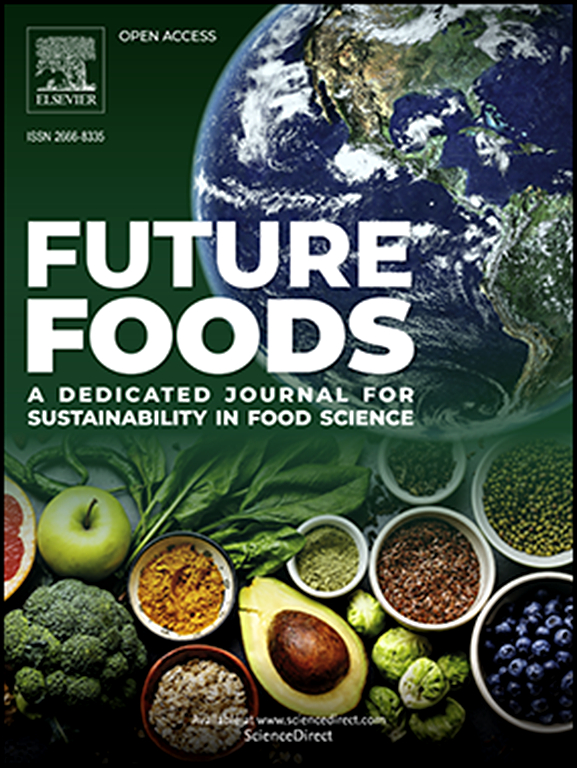Consumer preference analysis on medium chain triglycerides (MCT) oil in the Philippines: A conjoint analysis
IF 8.2
Q1 FOOD SCIENCE & TECHNOLOGY
引用次数: 0
Abstract
Medium-Chain Triglyceride (MCT) oil has gained popularity as a dietary supplement in the health and wellness industry, particularly for its potential health benefits and versatility in consumption. Despite its expanding popularity, there has been little research on the specific attributes that influence consumer preferences for MCT oil, creating a gap in understanding the factors that drive purchasing decisions in this market. This study aimed to address this gap by identifying the most preferred combination of MCT oil attributes using a conjoint analysis approach. Key attributes considered were price, packaging material, certification type, product form, sourcing location, flavor, and consumption method. A conjoint analysis with an orthogonal design was conducted using SPSS version 27 to evaluate consumer preferences across these attributes. Results indicated that price and packaging material were the most influential factors in consumer choice, followed by certification type and product form. Attributes such as sourcing location and flavor ranked lower in importance, suggesting a consumer preference for cost-effectiveness, sustainability, and health assurances over sensory characteristics. The findings have practical implications for MCT oil producers and marketers by providing insight into consumer priorities, enabling them to design products that align more closely with these preferences. Practical contributions include recommendations for product differentiation through strategic pricing, sustainable packaging, and organic certification. This study’s approach and findings may also be applicable to broader consumer preference analyses within the dietary supplement and health product markets globally.
菲律宾中链甘油三酯(MCT)油的消费者偏好分析:一项联合分析
中链甘油三酯(MCT)油作为一种膳食补充剂在健康和保健行业中越来越受欢迎,特别是因为它对健康的潜在益处和食用的多功能性。尽管MCT油越来越受欢迎,但关于影响消费者对MCT油偏好的具体属性的研究却很少,因此在理解驱动该市场购买决策的因素方面存在空白。该研究旨在通过使用联合分析方法确定MCT油属性的最佳组合来解决这一差距。考虑的关键属性是价格、包装材料、认证类型、产品形式、采购地点、风味和消费方式。使用SPSS第27版进行了正交设计的联合分析,以评估消费者对这些属性的偏好。结果表明,价格和包装材料是影响消费者选择的主要因素,其次是认证类型和产品形式。采购地点和风味等属性的重要性较低,这表明消费者对成本效益、可持续性和健康保证的偏好高于感官特征。这些发现对MCT油生产商和营销人员具有实际意义,可以洞察消费者的偏好,使他们能够设计出更符合这些偏好的产品。实际贡献包括通过战略定价、可持续包装和有机认证提出产品差异化建议。本研究的方法和发现可能也适用于全球膳食补充剂和保健品市场中更广泛的消费者偏好分析。
本文章由计算机程序翻译,如有差异,请以英文原文为准。
求助全文
约1分钟内获得全文
求助全文
来源期刊

Future Foods
Agricultural and Biological Sciences-Food Science
CiteScore
8.60
自引率
0.00%
发文量
97
审稿时长
15 weeks
期刊介绍:
Future Foods is a specialized journal that is dedicated to tackling the challenges posed by climate change and the need for sustainability in the realm of food production. The journal recognizes the imperative to transform current food manufacturing and consumption practices to meet the dietary needs of a burgeoning global population while simultaneously curbing environmental degradation.
The mission of Future Foods is to disseminate research that aligns with the goal of fostering the development of innovative technologies and alternative food sources to establish more sustainable food systems. The journal is committed to publishing high-quality, peer-reviewed articles that contribute to the advancement of sustainable food practices.
Abstracting and indexing:
Scopus
Directory of Open Access Journals (DOAJ)
Emerging Sources Citation Index (ESCI)
SCImago Journal Rank (SJR)
SNIP
 求助内容:
求助内容: 应助结果提醒方式:
应助结果提醒方式:


